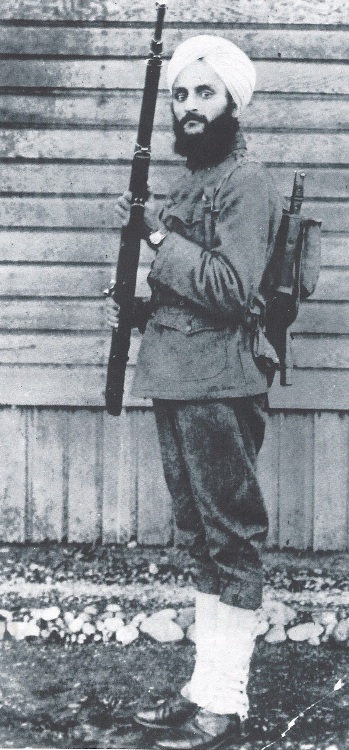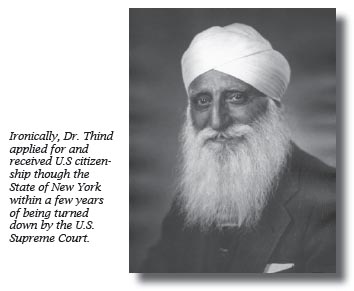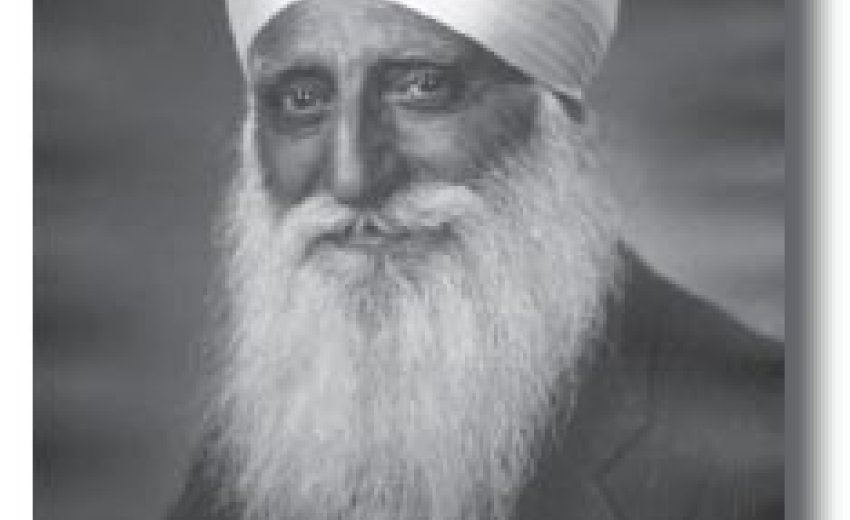|
US Sikh Pioneer’s anniversary
Bhagat Singh Thind was one of the major pioneers of Sikh immigration to the United States and an American hero. July 4th, 2013 marks the one hundred centennial when Thind set foot on American soil. His life adds immensely to the rich history of Sikhs in America.
Bhagat Singh Thind was born in October 1892 in Punjab, India. He came to the U.S. in 1913 to pursue higher education. While still an Indian citizen, he joined the U.S. army to fight in World War I. After 3 and a half months, turban-wearing Thind on Nov. 9th, 1918 was promoted to the rank of acting sergeant, however Thind received an “honorable discharge” due to the end of the war on Dec. 16, 1918 with his character designated as “excellent”.
The U.S. citizenship conferred many rights and privileges but only “Free white men” were eligible to apply in the “Unites States”, many anthropologists used “Caucasian” as a general term for “White”. Several Indians were granted U.S. citizenship of different states. Thind also applied for citizenship in the state of Washington, in July 1918. He received his citizenship certificate on Dec. 9, 1918 wearing military uniform as he was still serving in the U.S. army. However, the INS did not agree with the district court granting citizenship. Thind’s citizenship was revoked in four days on Dec. 13th, 1918, on the grounds that he was not a “free white man.” Thind, as a soldier in the U.S. army, had all the rights and privileges like any “white man” and was worthy of trust to defend the U.S. army but America would not trust him with citizenship rights because of the color of the skin.
Thind was disheartened but was not ready to give up his fight. He applied for citizenship again from the neighboring state of Oregon on May 6th, 1919. Thind, who had earned a Ph.D., become a prolific writer, an impressive speaker, and was respected as a “spiritual guide”, published many pamphlets and books and reached an audience of over five million.He lectured all over the country about metaphysics. He uniquely based his lessons on Sikh philosophy while integrating American thinkers such as Emerson, Thoreau, and Whitman into his work.
The Immigration and Naturalization Bureau also initiated proceedings to rescind citizenship of Indians. Between 1923 and 1926, the citizenship of 50 Indians was revoked. The Barred Zone Act of 1917 had already prevented fresh immigration of Indians. In 1935, the 74th Congress passed a law allowing citizenship to U.S. veterans of World War I, even those from the barred zones. Thind received his U.S. citizenship through the state of New York in 1936, taking the oath for the third time to become an American citizen.
Dr. Thind was working on some books when he suddenly died on Sep. 15th, 1967. He was survived by his wife, daughter and son.
Throughout his life in this country, he chartered on a unique path of educating himself, fighting for this nation as an American soldier, led a battle all the way to the Supreme court to secure full citizenship rights for himself and finally became a theologian and wrote articles and books promoting an interfaith dialogue and understanding. His story and his life should remain an inspiration to all Americans. |

 |

